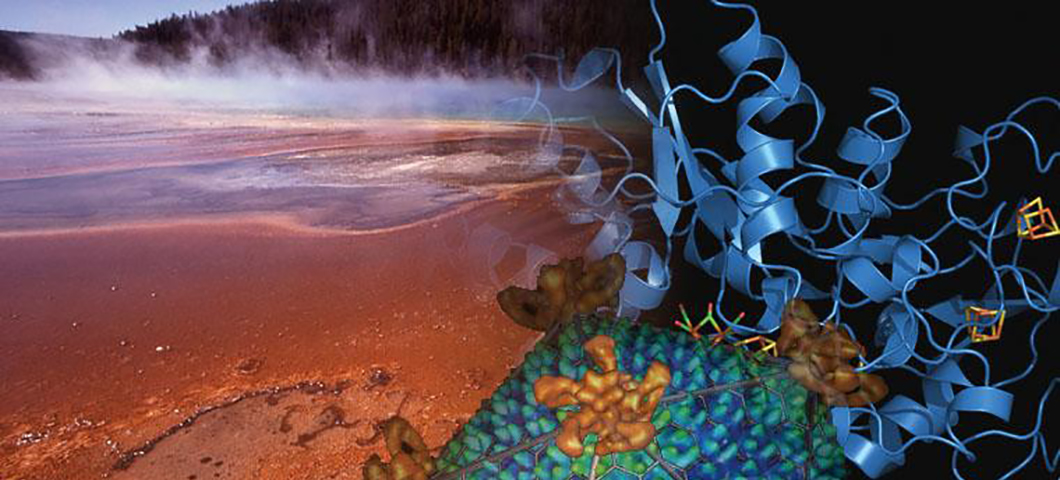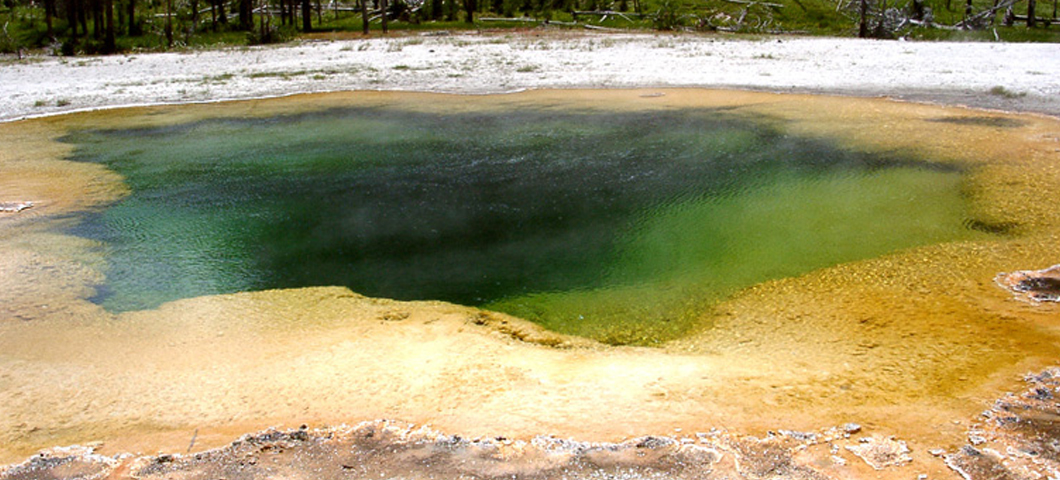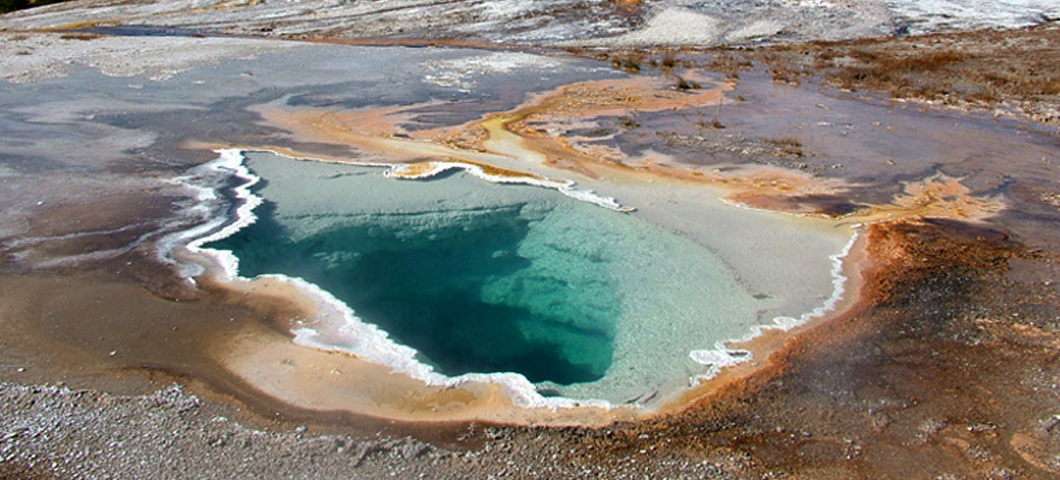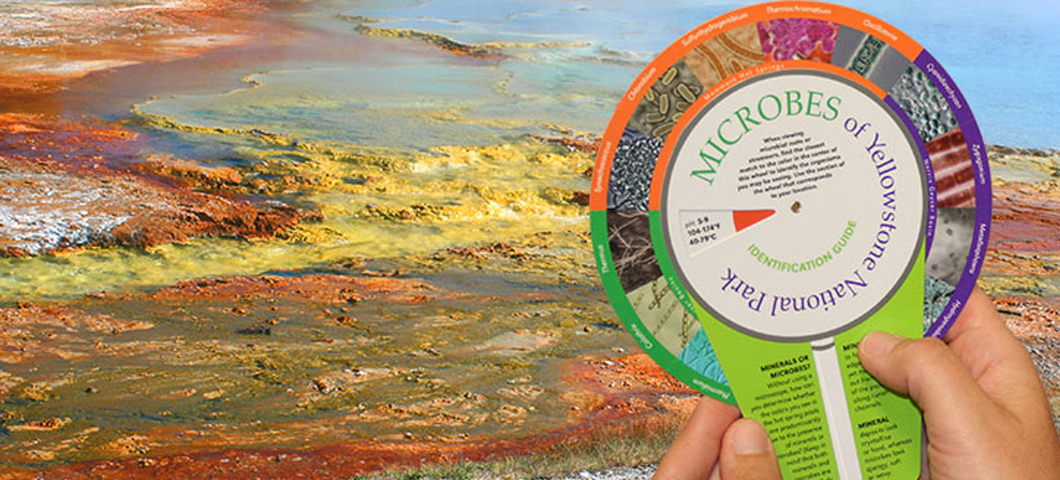Recent News

YELLOWSTONE WILD THROUGH TIME FILM

Bison Jam: A Yellowstone Podcast
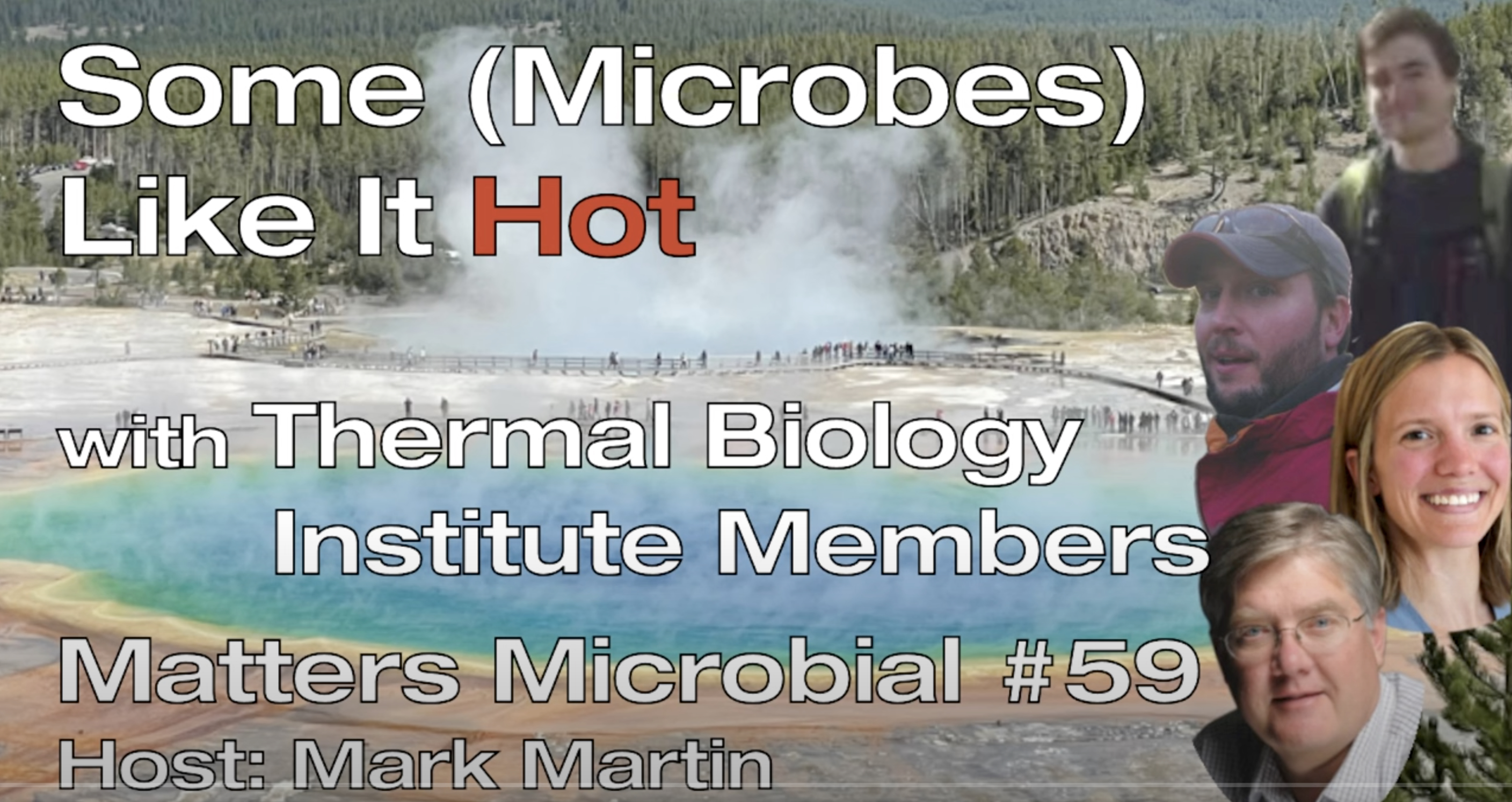
Matters Microbial #59: Some (Microbes) Like It Hot—Discussions with the Thermal Biology Institute

This Week in Microbiology 317: New methanogens from Yellowstone
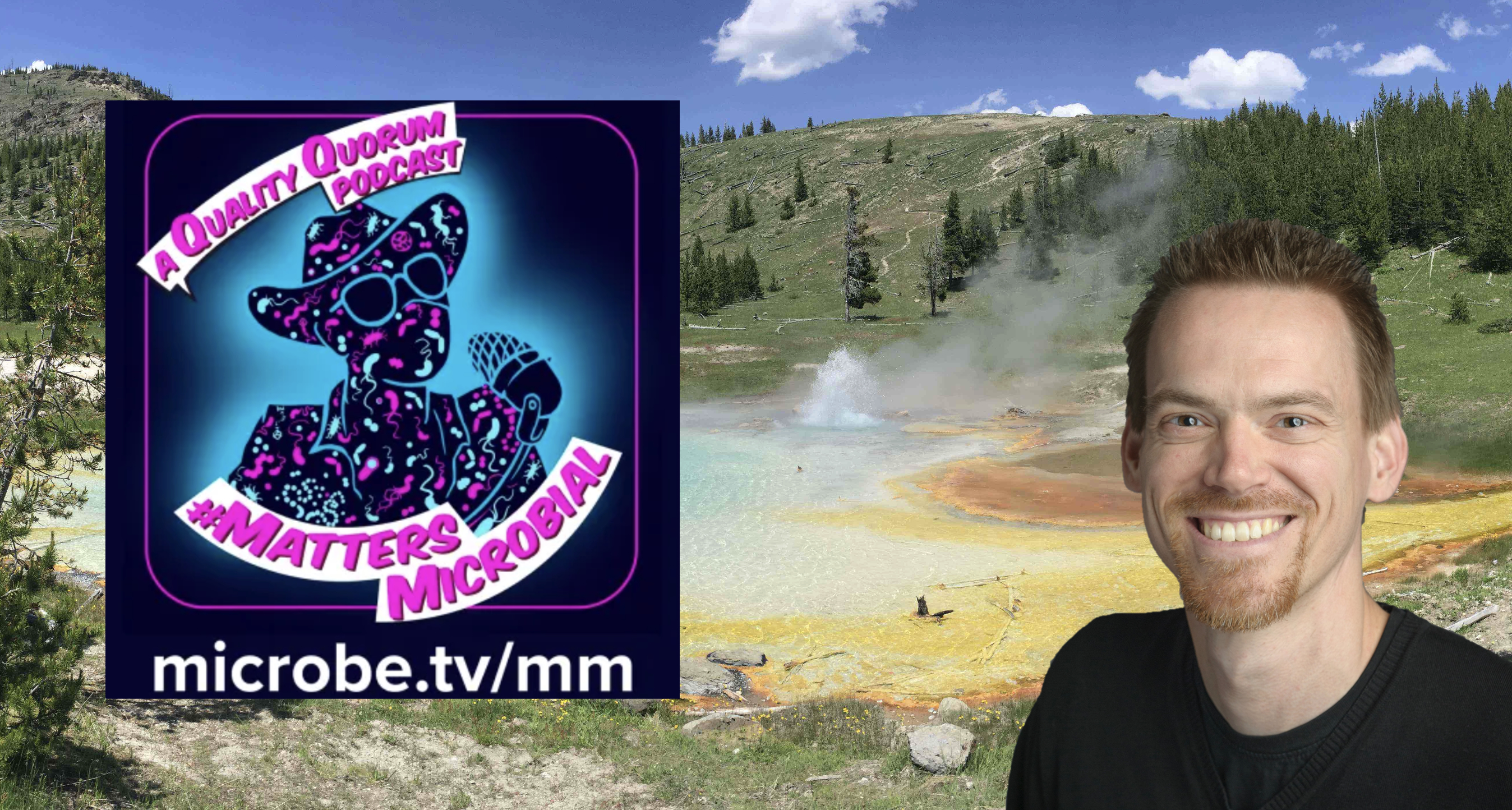
TBI associate director Hatzenpichler talks about his archaeal research on Matters Microbial podcast

NSF Ph.D. Research Traineeship Program Starts New Cohort (Fall 2022)
Eight Ph.D. students start training program in extreme biofilms with convergent research projects that advance knowledge on microbial biofilm communities in extreme systems while also equipping them with critical “soft skills” expected of science, technology, engineering, and mathematics (STEM) graduate degree holders. Learn more.
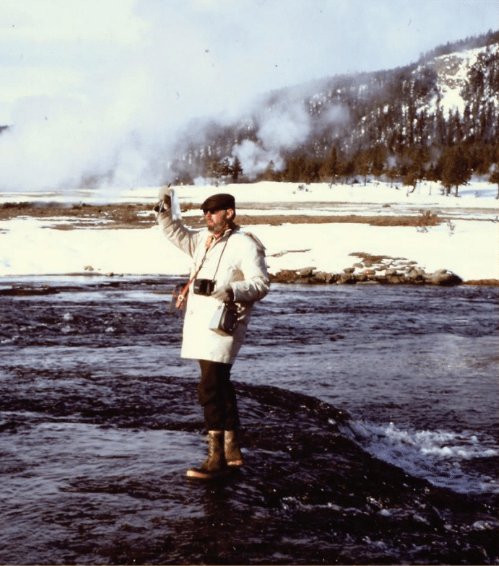
In Memoriam of Dr. Thomas Brock
Thomas Brock, the great microbiologist known for his discovery of hyperthermophiles and Thermus aquaticus (leading to TAC polymerase and the biotech revolution), passed away on April 4, 2021. For more on Dr. Brock's momentous career, please see this New York Times article dedicated to his many achievements.
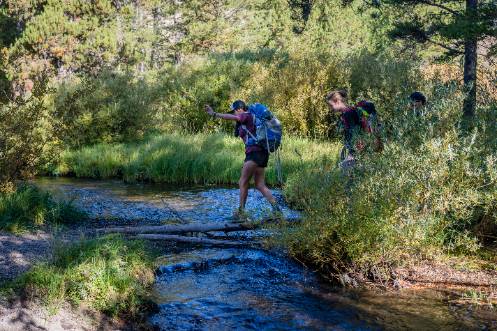
Montana Extreme Biofilm Research Experience for Undergraduates
Montana Extreme Biofilm Research is a10-week summer program designed to engage participants in a research project aimed at discovering new ways to grow, understand, and utilize extremophilic biofilms for human benefit.

MSU scientists’ discovery in Yellowstone ‘extremely relevant’ to origin of life
Professor William Inskeep and his team of researchers published their findings in the scientific journal Nature Microbiology. MSU News also published an article about his findings.

'Extreme Microbiology in Yellowstone'
NatGeo features an inside look of this spectacular view underneath the Yellowstone caldera.
Did You Know?
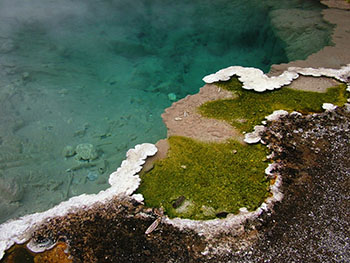
Thermophile
A thermophile is a microscopic organism that thrives at relatively high temperatures, usually between 45 and 122° C. The Thermal Biology Institute at MSU is dedicated to studying the unique and diverse thermophiles found in Yellowstone National Park; uncovering their unusual adaptions to life in environments of extreme heat, pH and toxicity, and using what we learn about these microbes to advance fundamental and applied research in host of important research areas spanning alternative energy, medicine, ecology and agriculture, just to name a few. Read more about thermophiles

Thermophiles in Yellowstone
Modern crime solving techniques and the science behind unraveling the riddles of genetic diseases, along with many other significant scientific advances, are due to the discovery of a certain thermophile in Yellowstone National Park. Read more Yellowstone discoveries


